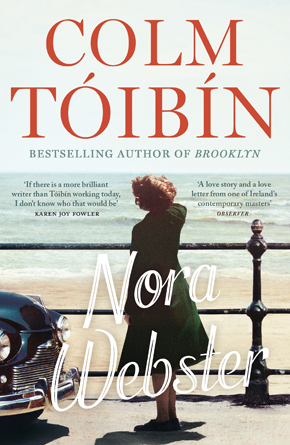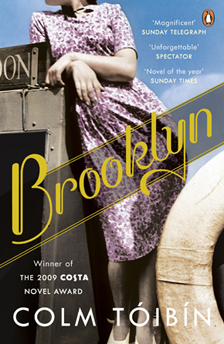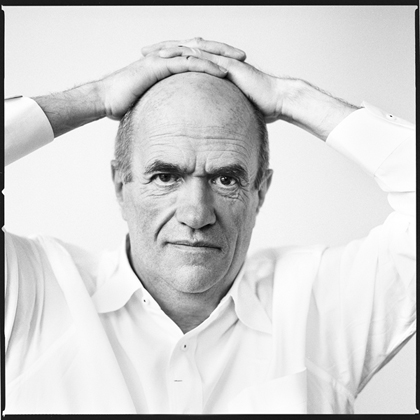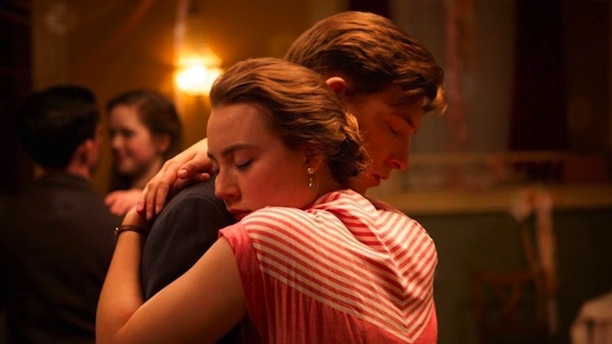Colm Tóibín: Loss and memory
by Mark ReynoldsWe catch up with the prolific and acclaimed Irish author on the launch of the paperback of Nora Webster, his part-autobiographical novel about grieving and renewal. The same week saw the Sundance premiere of John Cowley and Nick Hornby’s adaptation of his earlier novel Brooklyn.
Brooklyn and Nora Webster both deal with characters from Enniscorthy, the town where you grew up. You’ve acknowledged that the young widow Nora is broadly based on your mother, you’ve drawn on memories of family neighbours, and Nora’s son Donal is widely perceived as being a version of your younger self. So how autobiographical (or biographical) are these novels?
Brooklyn is based on a story I heard about a girl from the town. But I only had two sentences – that she had gone to Brooklyn and then come home and not told them at home that she had got married in Brooklyn and, once she told them, she returned and lived in Brooklyn for the rest of her life. I imagined everything after that – her job, her life, the boarding house, the sort of guy she met, what happened when she came back. Much of the detail in Nora Webster, on the other hand, is from memory; much is also made up.
The two novels are tonally very different, although they have several characters and (reported) events in common. Do you see them as a pair of novels to be read together?
Of the eight novels I have written, four are set in Enniscorthy or in the landscape around there – The Heather Blazing, The Blackwater Lightship, Brooklyn and Nora Webster. Some of The South is also set there. The Story of the Night, The Master and The Testament of Mary are all set in other landscapes. It might be interesting to read those first four novels and some of the short stories together, but I am not sure what you would get.

“Rare and tremendous… It does everything we ought to ask of a great novel.” – Tessa Hadley, Guardian
You also adapted the stage play Testament, as The Testament of Mary, while you were planning these novels. What was the chronology of your writing the various works? And did The Testament of Mary – and collecting the essays in for New Ways to Kill Your Mother – divert you from the novels, or help inform them?
I began The Master and Nora Webster in the spring of 2000. I finished The Master in 2003 and Nora Webster in 2013. Between 2000 and 2014, I wrote some of the essays in Love in a Dark Time and all of the essays in New Ways to Kill Your Mother. I wrote two books of short stories (and a good number of other stories) and also Brooklyn and The Testament of Mary, plus On Elizabeth Bishop, which is coming out in April. I also wrote a play, Beauty in a Broken Place and the stage version of The Testament of Mary. All of this work diverted me from other work.
How did your short story ‘Donal Webster’ fit into that chronology, and how did it help you distil Nora’s story?
I changed the title of that story to ‘One Minus One’. It was written in such a different tone that it made almost no difference. I suppose I was circling the material when I wrote the story.
How thrilled were you to have Fiona Shaw open the Broadway production of The Testament of Mary; and to have Meryl Streep narrate the audiobook?
In Ireland Marie Mullen did the part, and in Spain Blanca Portillo, and it was a marvellous experience working with all four actresses.
What is the trick to writing natural-sounding dialogue?
It should not reflect how people speak in what is called real life. But it should not seem artificial either. There is no trick. Almost every time you do it you have to think about it, and use as much tact as you have to make it seem natural, but not too chaotic.
Why have motherhood and loss become a dominant theme in your writing?
I have finished with motherhood now. I did a book of stories and two novels and some essays on the subject. That is enough! I don’t know why I did all that work. But loss remains. I will go on writing about loss. Don’t know why either. I don’t think about myself very much.
Which other writers have written particularly well about bereavement?
Shakespeare in Hamlet. More recently: C.S. Lewis, Joan Didion, Juan Goytisolo, Joyce Carol Oates, Julian Barnes.

“A taut, well-crafted, mesmerising novel. A masterly achievement.” – Independent
Can we expect further Enniscorthy novels, resuming as The Troubles escalate?
I don’t think so, but you can never tell.
What were Charlie Haughey’s best achievements and worst character flaws? And does Ireland’s current political landscape suffer for the lack of such a dominant and colourful figure?
He was able and intelligent with a sharp political mind. He was in part destroyed by the Arms Trial in 1969. The ten years between then and his becoming Taoiseach were not spent reading or thinking, but making friends with fools and staying out late. I don’t rate colour in politicians, but I am not sure there is much imagination or vision among Irish politicians now, and that is a pity.
Donal is gripped by the Apollo 11 mission. What are your own memories of the 1969 moon landing?
Watching it on Irish television. Being allowed stay up late.
You have taught at a number of universities in the US (as well as Manchester). How long is your current posting at Columbia University scheduled to run, and are you still teaching creative writing as well as comparative literature?
I don’t teach creative writing any more. My job at Columbia is open-ended.
What do you find to be the most rewarding aspects of teaching?
I like the students at Columbia, how industrious they are and serious and intelligent. Doing a seminar on a particular novel really sharpens me, and I hope it works for them in some similar way.
How much time in a typical year do you spend at your home in County Wexford? And how do you feel about the balance you currently achieve between life in New York and Southeast Ireland?
I like being away. Sets you free. And then I want to be back in Wexford. I am never there enough.
Which recent short-story collections have you most admired?
I liked Colin Barrett’s collection Young Skins for its dark vision and its flawless version of contemporary Ireland.
And which novels?
I liked Richard Ford’s Canada and Marilynne Robinson’s Lila.
What are you writing next?
I am writing some short stories and a novel set in contemporary Germany.
Have you seen John Crowley’s film of Brooklyn yet? Saoirse Ronan was superb in The Grand Budapest Hotel, and is sure to make a compelling Eilis…
Yes, I saw it. It is beautifully made and the emotion is perfectly calibrated. Saoirse manages to suggest an inner life for Eilis, and an inner life that changes as her circumstances change. She can exude both innocence and toughness, and a strange mystery that attracts people to her.
Colm Tóibín was born in Enniscorthy in 1955. He is the author of eight novels, two collections of stories and many works of non-fiction. The Blackwater Lightship, The Master and The Testament of Mary were each nominated for the Booker Prize and Brooklyn won the Costa Novel Award. Nora Webster is out now from Penguin in paperback, eBook and digital audiobook (read by Fiona Shaw).
Read more
colmtoibin.com
Mark Reynolds is a freelance editor and writer, and a founding editor of Bookanista.



